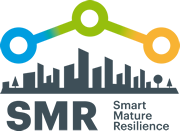Resources
PUBLICATIONS AND DOWNLOADS
Existing standards and standardization activities report
Date
Deliverable
31/05/2016
D6.1
Lead Partner
DIN
Authors
René Lindner and Bernhard Kempen (DIN)
Co-authors
Maider Sainz (TECNUN)
The aim of this report is to disseminate knowledge about relevant existing standards and standardization activities amongst project partners and to support the awareness rising of possible missing standards. Thus this document will show the current resilience and Smart City standardization landscape, specifically taken into consideration the security aspects, and will list and briefly assess the standards relevant for this project.
This document is structured into four main parts. Firstly chapter 2 describes briefly the context in which this document has been developed and explains the methodology used for the analysis of the existing standards. The next part (Chapter 3) provides with basic information about the current status of the Smart City Standardization Landscape. The results of the standards research are placed in chapter 4, while the final part of the document draws conclusions regarding the general status of the standardization landscape in smart cities and the identified standards lists.
To sum up a great variety of committees and organizations engage themselves in the undertaking of smart cities and relative subjects as risk management or resilience. An extensive list of standards including 276 relevant items have been identified after careful observation of the discussions at all Smart Mature Resilience (SMR) workshops so far, keyword extraction and interchange as well as by a questionnaire filled out by the project partners. The research has been conducted by the use of a standards database. An initial priorities classification for importance has been executed and thus 95 standards could be highlighted that are to be taken into account when generating own standards within the SMR project.
Furthermore, the analysis of the standards has provided an important basis for the forthcoming work in Work package 6, where the main objective is to build on the validated guideline developed in the SMR project and to develop a new standard based on the essential guideline content (Task 6.3). Before, the results of this report will be compared with the needs identified for standardization to support the identification of standardization potential within the project and thus to fill the gap in existing standardization (Task 6.2).

This project has received funding from the European Union’s Horizon 2020 research and innovation programme under grant agreement no. 653569.

